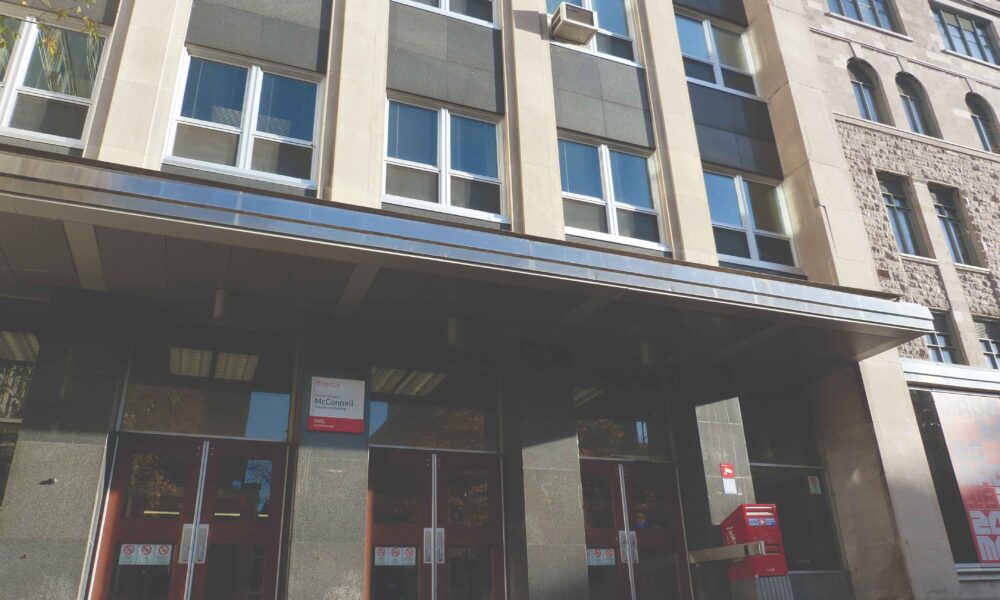McGill’s School of Computer Science (SOCS) made the most of their 50th anniversary by celebrating notable alumni, students, and professors through an eclectic selection of activities on Oct. 21 and 22. Networking events and featured talks complemented undergraduate and graduate research presentations focused on various computer science (CS) topics, followed by an open coding challenge that concluded the two-day event.
The McGill Tribune sat down with SOCS director Mathieu Blanchette and SOCS co-director of undergraduate affairs Brigitte Pientka to discuss the School’s past achievements, present challenges, and future goals.
Blanchette highlighted alumnus Alan Emtage, BSc ‘87 and MSc ‘91, for his pivotal role in the creation of the world’s first web search engine, Archie. McGill awarded Emtage an honorary doctorate for his significant contributions to the development of the Internet, as well as his commitment to making his work freely available so that anyone could benefit from it as quickly as possible.
“The thing that I’m the most proud of is that this School has trained more than 10,000 students, [many of whom] have gone on to impact society [in various ways and have] contributed to making Montreal a hub of research and development in artificial intelligence,” Blanchette said.
Pientka described the development of the SOCS as truly remarkable. From a nascent department with just a handful of professors, it has grown into a world-class teaching institution with more than 2,400 students, representing 30 per cent of the students in the Faculty of Science, according to Pientka.
“Our student population has changed a lot. Computer science is not a fringe kind of thing anymore for really techy people [….] It’s for everybody,” Blanchette said.
Women, however, make up a minority of the “everybody” that the SOCS director is referring to. At McGill, the proportion of CS undergraduate students who identify as women amounts to just over 35 per cent. SOCS is rightfully proud of this percentage, which is significantly higher than the average 20 per cent at many North American universities.
Pientka’s experience as an undergraduate CS student in the early 1990s was strikingly different than that of a woman’s today. The professor shared that she would only spot four to five women in a CS class of 400 students and that she did not have any real role models due to the utter absence of female professors.
One of Pientka’s favourite moments of the 50th anniversary celebration was a talk by alumna Carla Brodley, BSc ‘85, which centered on ways to extend participation in CS beyond the typical white, male population. Brodley is a world-renowned artificial intelligence (AI) researcher and the Dean of Inclusive Computing at Northeastern University.
Brodley’s academic path exemplifies the versatility of the programs offered at SOCS. For instance, she had initially chosen an English major, but she switched to economics before finally settling into CS after an introductory programming course lured her in.
On Oct. 21, Brodley presented various strategies SOCS could implement to further increase accessibility in CS for women.
“The next step is to increase the participation of [women] in the master’s program and [to figure out] how to fund them because a lot of them are international students,” Pientka said.
The SOCS’s enrollment has skyrocketed in recent years and has attracted an increasing number of individuals who have been traditionally underrepresented in the field, particularly women, by offering different pathways into CS such as through the Faculty of Arts, interdisciplinary programs like Computer Science and Biology, and through the highly accessible 200-level computer programming courses.
Pientka also stressed that additional resources from the university would allow SOCS to continue their exemplary work in a more sustainable manner.
“It would be important that McGill recognizes the importance of computer science, in society and economy, but also for the students,” Pientka said.









